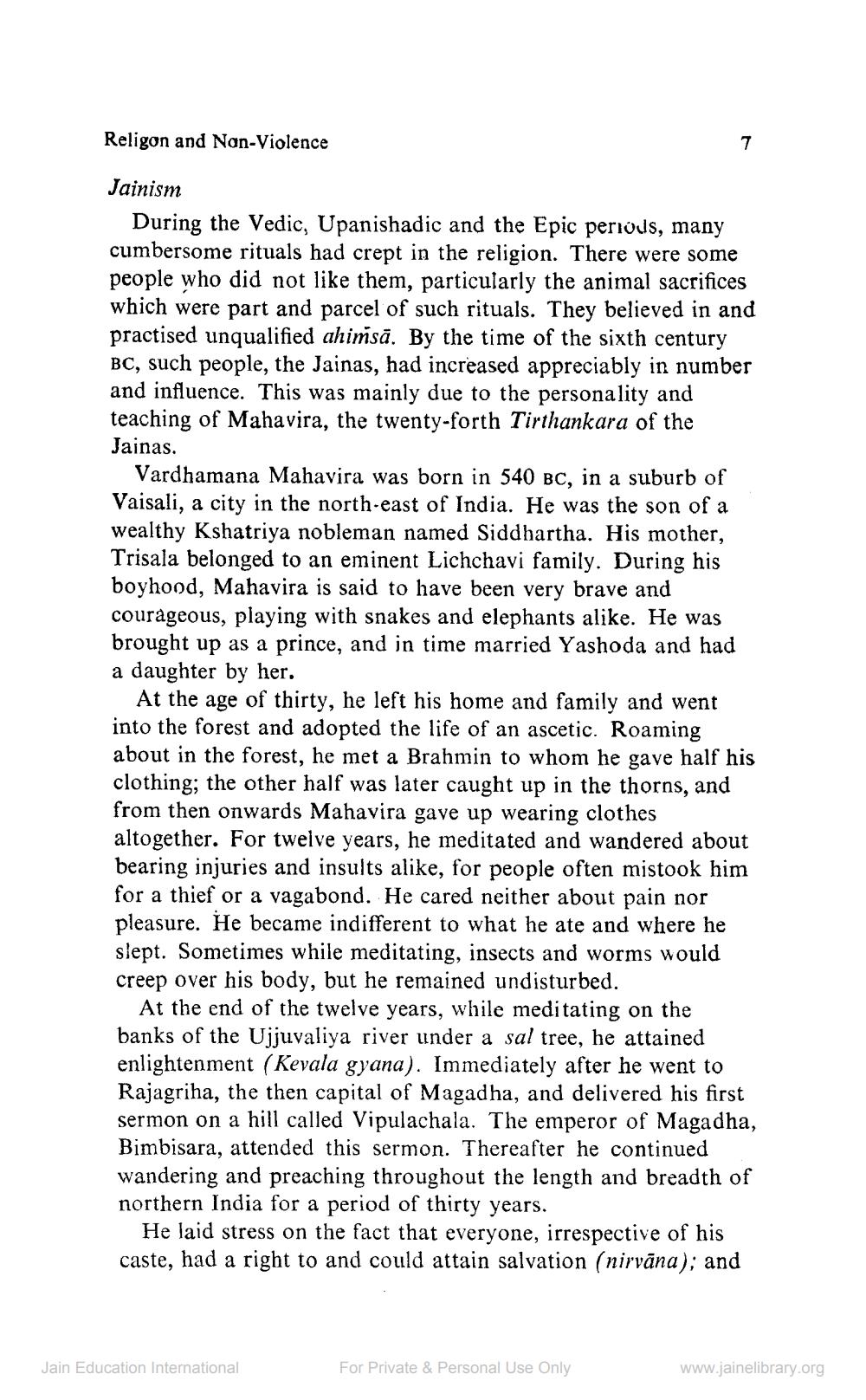________________
Religon and Non-Violence
Jainism
During the Vedic, Upanishadic and the Epic periods, many cumbersome rituals had crept in the religion. There were some people who did not like them, particularly the animal sacrifices which were part and parcel of such rituals. They believed in and practised unqualified ahimsā. By the time of the sixth century BC, such people, the Jainas, had increased appreciably in number and influence. This was mainly due to the personality and teaching of Mahavira, the twenty-forth Tirthankara of the Jainas.
Vardhamana Mahavira was born in 540 BC, in a suburb of Vaisali, a city in the north-east of India. He was the son of a wealthy Kshatriya nobleman named Siddhartha. His mother. Trisala belonged to an eminent Lichchavi family. During his boyhood, Mahavira is said to have been very brave and courageous, playing with snakes and elephants alike. He was brought up as a prince, and in time married Yashoda and had a daughter by her.
At the age of thirty, he left his home and family and went into the forest and adopted the life of an ascetic. Roaming about in the forest, he met a Brahmin to whom he gave half his clothing; the other half was later caught up in the thorns, and from then onwards Mahavira gave up wearing clothes altogether. For twelve years, he meditated and wandered about bearing injuries and insults alike, for people often mistook him for a thief or a vagabond. He cared neither about pain nor pleasure. He became indifferent to what he ate and where he slept. Sometimes while meditating, insects and worms would creep over his body, but he remained undisturbed.
At the end of the twelve years, while meditating on the banks of the Ujjuvaliya river under a sal tree, he attained enlightenment (Kevala gyana). Immediately after he went to Rajagriha, the then capital of Magadha, and delivered his first sermon on a hill called Vipulachala. The emperor of Magadha, Bimbisara, attended this sermon. Thereafter he continued wandering and preaching throughout the length and breadth of northern India for a period of thirty years.
He laid stress on the fact that everyone, irrespective of his caste, had a right to and could attain salvation (nirvāna); and
Jain Education International
For Private & Personal Use Only
www.jainelibrary.org




